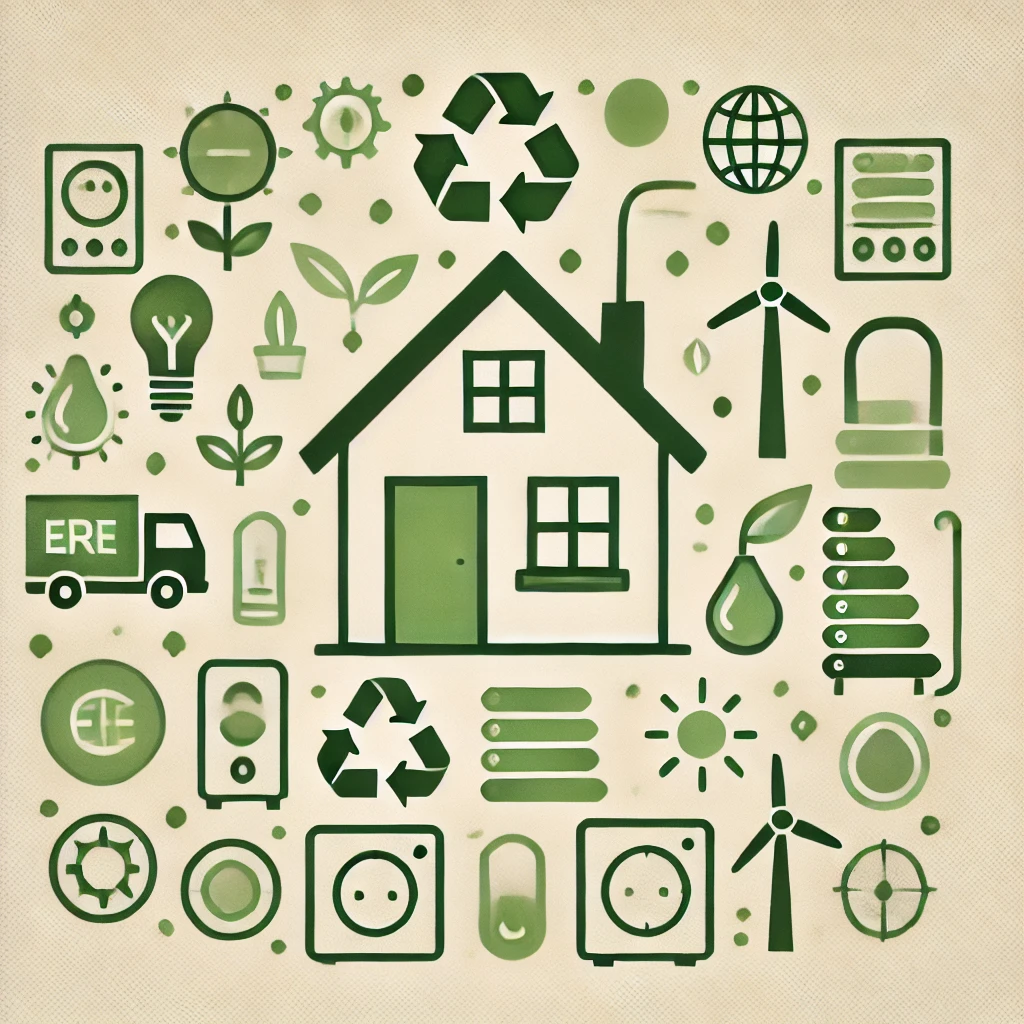
In recent times, sustainability has become a buzzword, but its significance is far from superficial. As our earth faces mounting challenges similar to climate change, pollution, and the reduction of natural coffers, the need for sustainable living has now been more critical. Sustainable living isn’t just about making grand gestures or following the rearmost trends; it’s about making conscious choices that minimize detriment to the terrain and promote the well-being of unborn generations.
While the environmental extremity may feel inviting, small changes in our diurnal lives can inclusively have a significant impact. In this blog, we will explore the conception of sustainable living, its significance, and practical way that anyone can take to make a positive difference.
- What’s Sustainable Living?
Sustainable living is the practice of making life choices that contribute to the health of the terrain, society, and frugality. It focuses on reducing consumption, waste, and carbon emigrations while prioritizing conservation, resource effectiveness, and ethical practices. Basically, sustainable living aims to meet the requirements of the present without compromising the capability of unborn generations to meet their own requirements. At its core, sustainable living seeks to produce harmony between humans and the earth. This involves espousing habits and making opinions that minimize our ecological footmark — similar as reducing energy consumption, conserving water, supporting original and ethical businesses, and prioritizing renewable coffers. - Why is Sustainable Living Important?
The urgency of sustainable living can not be exaggerated. The world is facing several environmental heads that have far- reaching consequences Climate Change Human exertion, similar as burning fossil energies and deforestation, has led to an increase in hothouse feasts in the atmosphere. This has caused global temperatures to rise, performing in extreme rainfall events, rising ocean situations, and disintegrated ecosystems. Resource Depletion Natural coffers, similar as fossil energies, fresh water, and rich soil, are being consumed at unsustainable rates. Overconsumption and extravagant practices are depleting these coffers, hanging their vacuity for unborn generations. Biodiversity Loss Destruction of territories, pollution, and climate change are contributing to the loss of biodiversity. numerous species are at threat of extermination, which has serious counteraccusations for the health of ecosystems and mortal societies. Pollution Air, water, and soil pollution are wide and dangerous to both the terrain and mortal health. indecorous disposal of waste, reliance on single- use plastics, and artificial conditioning each contribute to pollution that venoms the earth. By embracing sustainable living, we can reduce our environmental impact, decelerate the goods of climate change, and save the earth’s coffers for unborn generations. Small individual conduct, when gauged , can produce a meaningful shift in the collaborative approach to environmental stewardship. - Practical Way for Sustainable Living
Sustainable living does n’t bear drastic life changes, but it does bear a shift in mindset. Then are some practical, everyday conduct you can take to live more sustainably Reduce, Exercise, and Reclaim
The classic mantra “ Reduce, Exercise, Reclaim ” remains a foundational principle of sustainability. Start by reducing your consumption of single- use products and plastic. Choose applicable bags, bottles, and holders, and conclude for products with minimum packaging. Reusing particulars, whether it’s repurposing old cabinetwork or choosing secondary goods, helps reduce waste and minimizes the demand for new products. Reclaim accouterments like paper, glass, and essence to insure they do n’t end up in tips
, and share in community recycling programs when available. Conserve Water
Water is one of the most precious coffers on Earth, yet it’s frequently taken for granted. Simple conduct similar as turning off the valve while brushing your teeth, fixing leaks, and installing low-inflow showerheads can reduce your water consumption significantly. also, consider using rainwater harvesting systems for irrigation or othernon-potable uses. Choosing water-effective appliances, similar as dishwashers and washing machines, also helps conserve water. The more aware we’re about how we use water, the lesser the positive - Impact on the terrain. Minimize Energy operation
Reducing energy consumption is one of the most effective ways to lower your carbon footmark. Start by being aware of how important energy you’re using at home — turn off lights when they’re not in use, open electronics, and use energy-effective appliances. conclude for LED bulbs, which use lower energy and last longer than traditional incandescent bulbs. Consider switching to renewable energy sources like solar or wind power if it’s available in your area. In addition to reducing your particular energy consumption, supporting the growth of renewable energy helps reduce dependence on fossil energies and lowers hothouse gas emigrations. Support Sustainable Transportation
Transportation is one of the biggest contributors to hothouse gas emigrations, especially in civic areas. To live more sustainably, consider druthers to driving your auto. Walking, biking, or using public transportation are great ways to reduce your carbon footmark while promoting a healthier life. still, consider switching to an energy-effective or electric vehicle, If you must drive. - Carpooling and using lift-sharing services can also help reduce the number of vehicles on the road, reducing business traffic and lowering emigrations. Eat further Factory- Grounded Foods
Food assiduity, particularly meat and dairy product, has a significant environmental impact. Beast husbandry requires large quantities of water, land, and feed, and produces significant hothouse gas emigrations. One way to reduce your environmental impact is by eating further factory- grounded refections. Incorporating further fruits, vegetables, legumes, and grains into your diet can have a positive effect on the earth. also, choosing locally grown, organic foods can help reduce the carbon footmark associated with food product and transportation.
Conclusion A Shared Responsibility
The need for sustainable living is no longer a distant concern but an immediate responsibility. By making aware choices in our diurnal lives, we can reduce our environmental footmark, cover vital ecosystems, and insure that unborn generations inherit a healthier earth.



